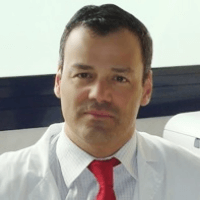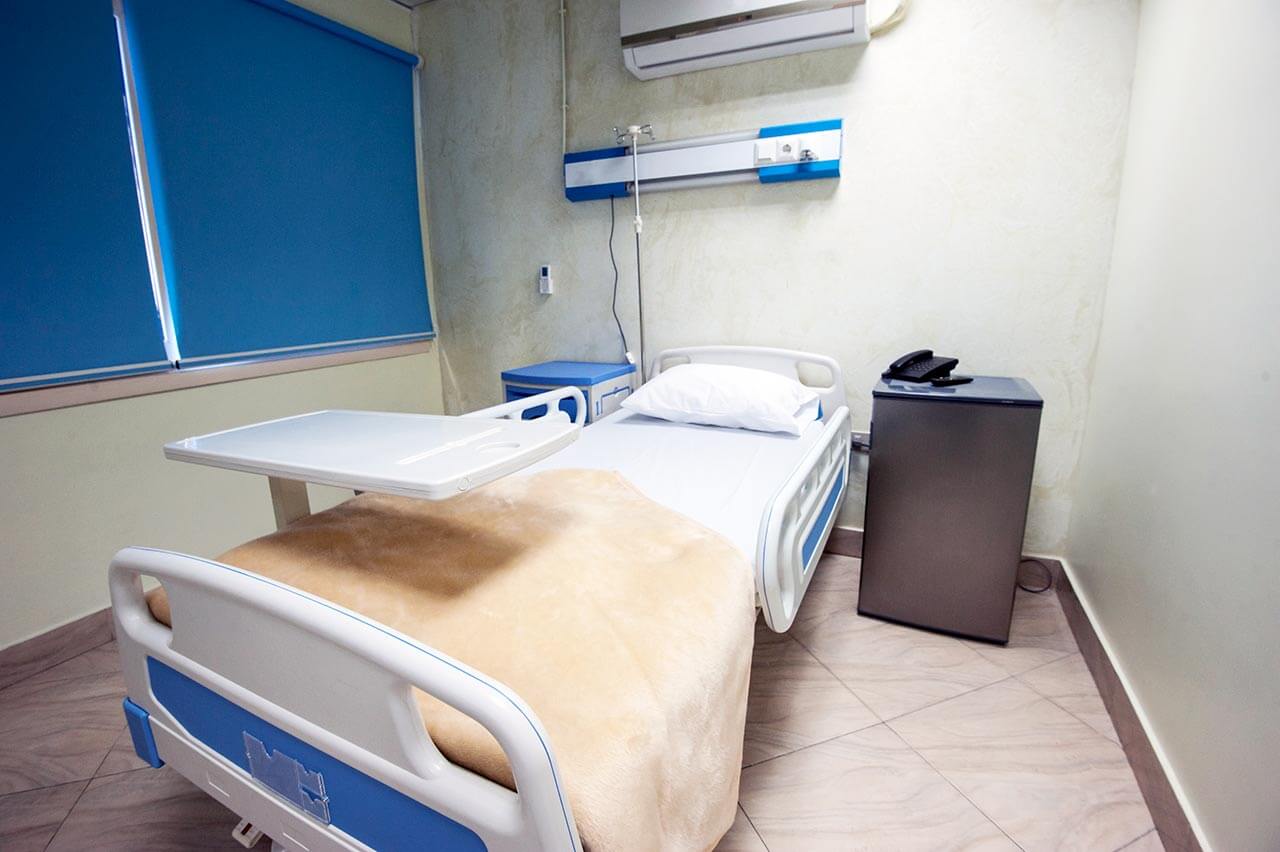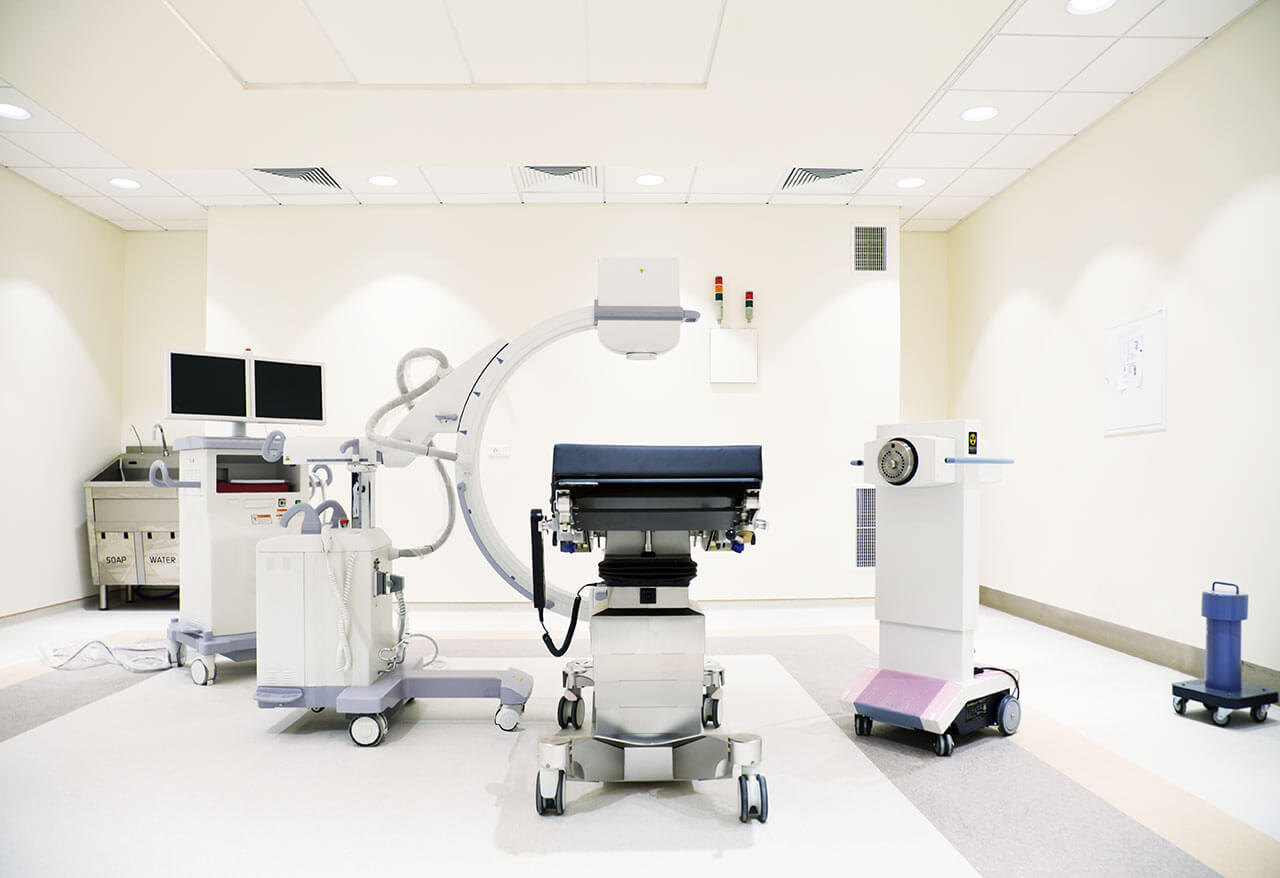
About the Department of Neurosurgery at University Hospital HM Monteprincipe Madrid
The Department of Neurosurgery at the University Hospital HM Monteprincipe Madrid offers the full range of modern surgical treatment of diseases of the nervous system. The department's neurosurgeons have rich experience and technical options for both simple routine and especially complex interventions on the brain and spinal cord. To achieve the best treatment results, there is maintained productive cooperation with the specialists in oncology, neurology and interventional neuroradiology. The Chief Physician of the department is Dr. med. Jorge Diamantopoulos Fernández.
The rich experience of the department's neurosurgeons and the progressive operating rooms allow for the interventions of varying degrees of complexity in brain tumors, pituitary tumors, epilepsy, Parkinson's disease, vascular malformations, functional neurological disorders, etc.
The state-of-art navigation systems and computer equipment in the department allow the surgeons to perform the most accurate manipulations, while preserving healthy tissue and vital functions of the nervous system. An impressive amount of money is allocated annually for updating medical equipment, so the patients receive high-quality treatment at the highest level. The department's medical staff regularly undergo advanced training courses, take part in medical conferences and congresses, thanks to which they get acquainted with the experience of colleagues and share their achievements.
The department is the first medical complex in Madrid and the second at the national level, which has PoleStar N30 iMRI with the StealthStation i7 integrated browser for intraoperative MRI. These integrated technologies, which are available only in four other European clinics and in nine clinics around the world, allow the department to hold leading positions in neuro-oncology in the European medical arena.
The use of PoleStar N30 iMRI is important when removing brain and spinal tumors. The research results demonstrate that when using this technology, the degree of tumor resection reaches 96% as compared to 68% using conventional methods. The frequency of repeated operations in tumor recurrence decreased by 35%-60% (depending on the type of tumor). This is especially important because the totality of tumor resection is the most significant prognostic factor in the duration and quality of life. The main advantages of the intraoperative tomography include real-time resection control, preservation of healthy tissues and nerve structures, as well as control of the displacement of brain structures during surgery.
The key areas of the department's clinical practice include:
- Interventions for complex tumors using intraoperative MRI and 5-ALA
- Deep brain stimulation
- Surgical treatment of cerebral aneurysms
- Artificial disc replacement
- Brachial plexus surgery
- Laminectomy for spinal stenosis
- Posterior spinal fusion
- Minimally invasive surgery of the cervical, thoracic and lumbar spine
- Microdiscectomy for herniated discs
- Peripheral nerve surgery
- Skull base and pituitary endoscopic surgery
- Functional surgery (Parkinson's disease, epilepsy)
- Vascular neurosurgery (vascular malformations)
- Other surgical options
Curriculum vitae
Education
- 1987 - 1993 Bachelor of Medicine and Surgery, Autonomous University of Madrid.
- United States Medical Licensing Examination (USMLE).
Professional Career
- 2007 Resident of the Department of Neurosurgery at the Anderson Clinic.
- 2005 - 2006 Resident of the Department of Neurosurgery at the Moncloa Hospital.
- 2002 - 2005 Neurosurgeon at the Moncloa Hospital.
- Neurosurgeon at the Hospital Beneficência Portuguesa de São Paulo.
Memberships in Professional Societies
- Spanish Society of Neurosurgery.
- Spanish Working Group on Vascular Surgery.
Photo of the doctor: (c) HM Hospitales




